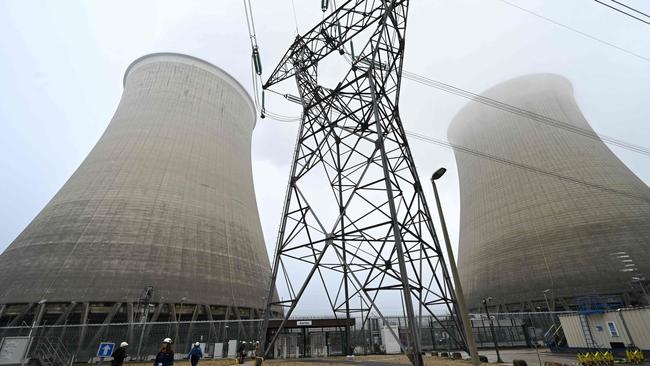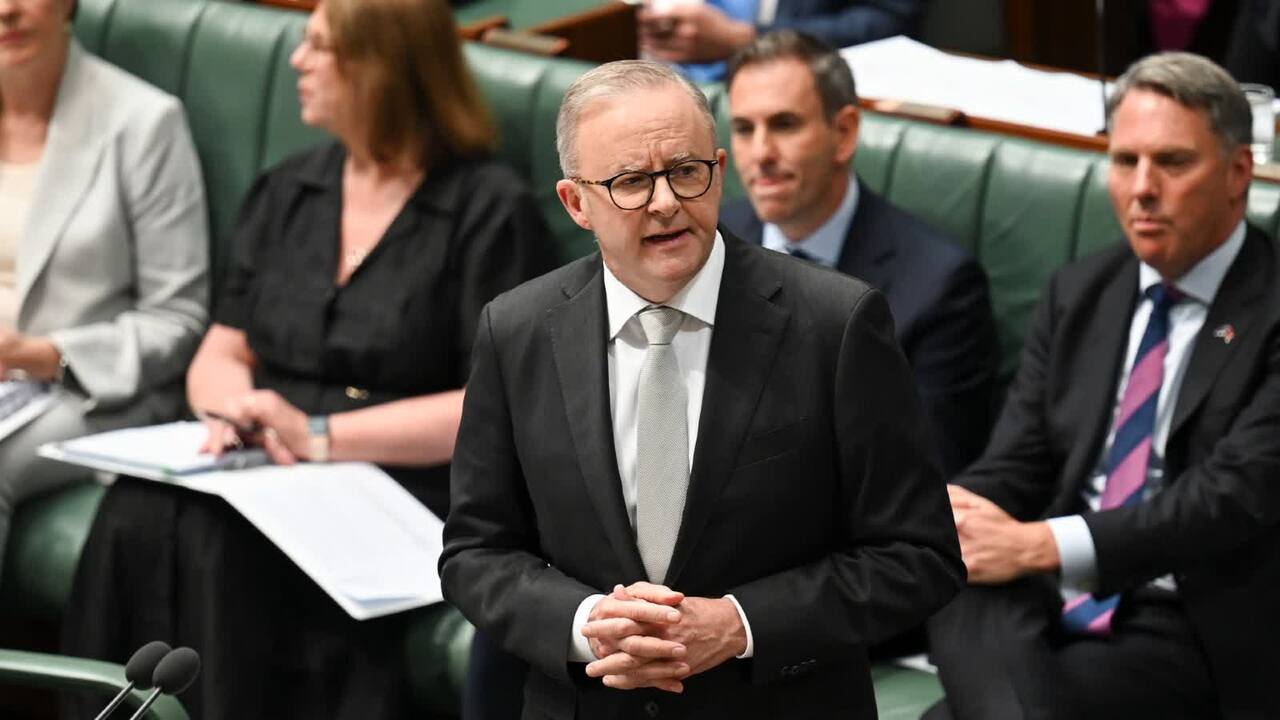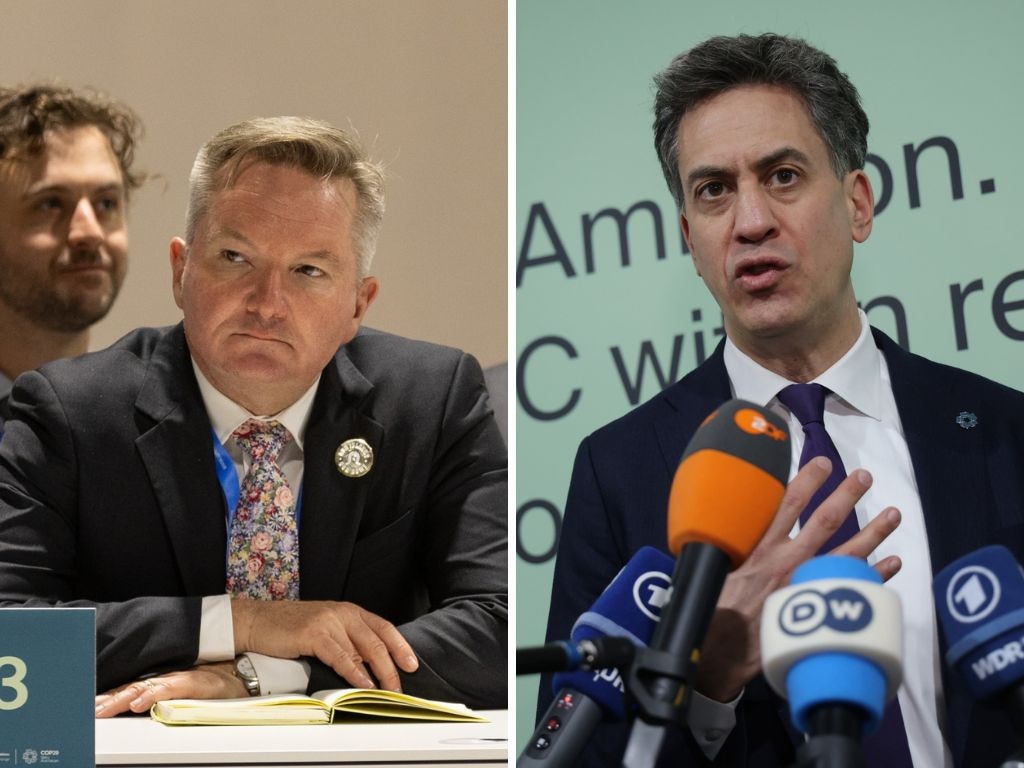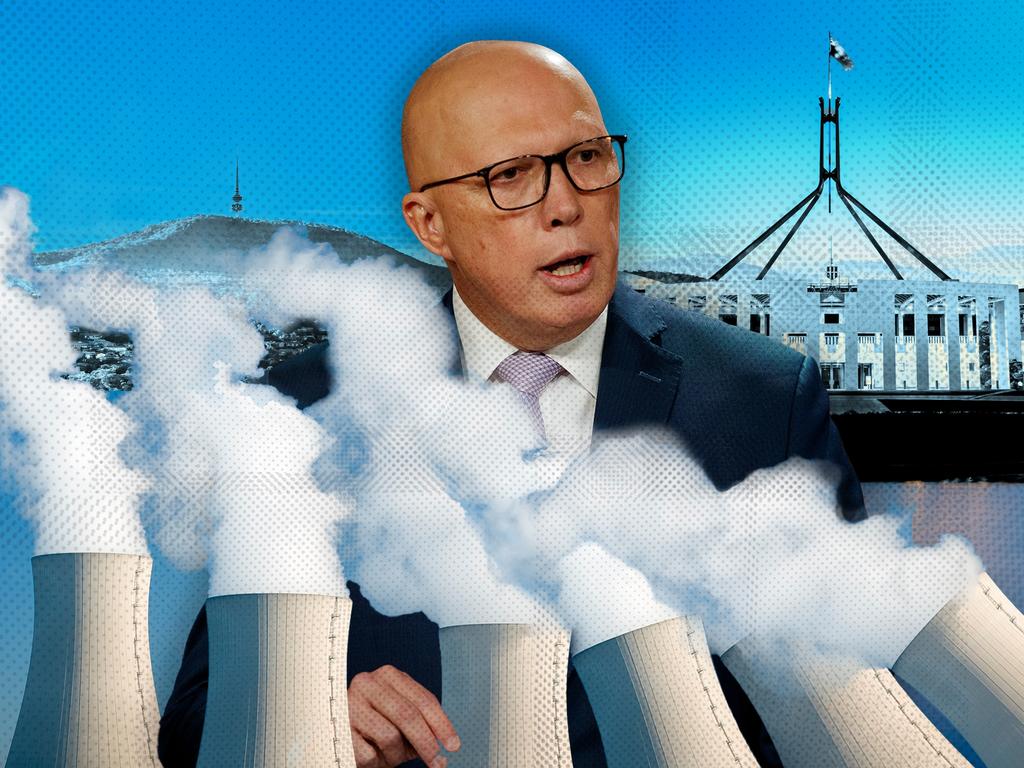Labor’s nuclear pact withdrawal ‘a catastrophic strategic mistake’, business wants future option
Business leaders urge the Albanese government to include nuclear as a future energy option, joining criticism of Labor’s withdrawal from an international nuclear collaboration.

Business and industry leaders are urging the Albanese government to include nuclear as a future energy option, warning “we shouldn’t tie one arm behind our back”, as Labor’s withdrawal from an international collaboration on next generation nuclear power is labelled a “catastrophic strategic mistake”.
Acting Prime Minister Richard Marles defended the government’s decision to reject an invitation from the UK and US to join a new agreement to speed up the deployment of nuclear technology to help decarbonise industry and boost energy security, declaring Labor wouldn’t go down a civil nuclear industry path.
The major parties accused each other of being an “embarrassment” over their respective energy policies, after the UK was forced to correct a media release that stated Australia was “expected” to sign up to the Generation V International Forum.
Australia has been a member of the Gen IV pact since the Turnbull government joined up in 2016 and, through the Australian Nuclear Science and Technology Organisation, has worked on collaborations on generation four nuclear energy systems and research and development projects.
But government sources said because Gen V had a big focus on expanding the nuclear civil industry, it was becoming less relevant to Australia and the nation would not be a member.
Australia may be involved as an observer.
The man responsible for negotiating the nation’s entry into the Gen IV pact, Adi Paterson, said the withdrawal from the collaboration would be seen by allies as “an act of deep confusion”.
“It is a catastrophic strategic mistake. It is crazy and disappointing,” Dr Paterson, a former ANSTO chief executive, told The Australian.
“It means we don’t just have a ban (on nuclear power) in Australia today but in 12 to 20 years time. We are breaking collegiality with allies and friends on ideological grounds. This is not how to do soft diplomacy.”
Dr Paterson said Australia’s entry into Gen IV had been welcomed by both sides of politics, noting forum events had been held in Australia and ANSTO had made a valuable contribution with research on reactors and storage of nuclear material.

Australia’s three leading big business and industry groups, the Business Council of Australia, Australian Chamber of Commerce and Industry and Australian Industry Group, all backed a technology agnostic approach to the country’s future energy mix.
“We don’t think there should be a legislative barrier to nuclear,” ACCI chief executive Andrew McKellar said.
“It shouldn’t be prohibited as part of the future energy mix, but if it was to be included it should be economically viable. It’s an outcome that should come from the market, not through some artificial stricture or action of government. From a business point of view, we don’t know what our circumstances will be in 10, 20 or 30 years … and we shouldn’t tie one arm behind our back.”
Ai Group chief executive Innes Willox said while nuclear doesn’t appear viable today, it may become so in the years ahead.
“Given how rapidly technology is evolving, it would be counterintuitive to simply rule it out as a future energy source,” he said.
BCA chief executive Bran Black noted the lobby group had consistently called for a technology-neutral approach to achieving net-zero emissions by 2050.
Peter Dutton and his MPs attempted to use question time to make the Albanese government look isolated on the issue.
Defending the government’s stance, Mr Marles said nuclear was the single most expensive form of electricity in the world today, would cost Australian households an extra $1200 in their bills and it wouldn’t come online for another two decades.
“Even then it’s only 4 per cent of the grid,” he said. “That’s what the ridiculous proposal that has been put forward by the Leader of the Opposition represents.”






To join the conversation, please log in. Don't have an account? Register
Join the conversation, you are commenting as Logout